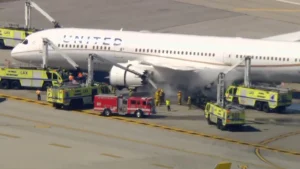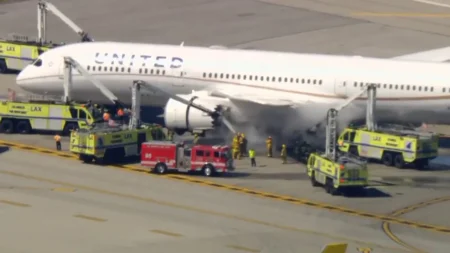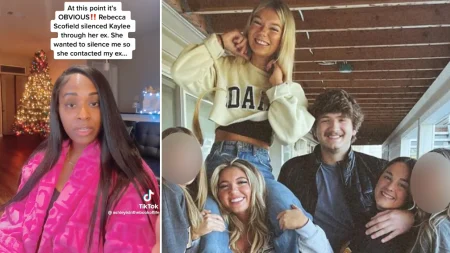On a tragic day in April 2023, a South Carolina woman named Jamie Komoroski was involved in a fatal DUI crash that resulted in the death of a bride, Samantha Miller, on her wedding night. As her trial approached, Komoroski, aged 27, decided to plead guilty to multiple charges, including felony DUI and reckless homicide. Reports indicated that Komoroski’s blood alcohol content was over three times the legal limit at the time of the crash, where she drove her rental car at 65 mph in a 25 mph zone. The collision occurred while Miller and her husband, Aric Hutchinson, were leaving their wedding reception in Folly Beach. The impact killed Miller instantly and left Hutchinson with severe injuries, including broken legs and cranial trauma.
In the aftermath of the incident, the justice system responded with a sentence for Komoroski of 25 years in prison, announced after she entered her guilty pleas. During the court proceedings, Hutchinson expressed his view that while the punishment seemed appropriate, it could never truly compensate for his loss. He felt sympathy for Komoroski’s apparent remorse but emphasized that such feelings could not alter the reality of his wife’s absence. Hutchinson shared a poignant recollection of his last moments with Miller, amplifying the emotional toll inflicted by the tragedy, which also significantly affected both families involved.
The courtroom saw heartfelt statements from both Hutchinson and Miller’s family. In particular, Lisa Miller, the mother of the deceased bride, recounted the joy of dancing with her daughter just hours before the tragic event—a moment that now carried an unbearable weight of grief. The devastation of the situation was palpable, as witnesses understood that the joyful celebration of love had turned into unimaginable sorrow. Hutchinson’s emotional appeal to Komoroski underscored not only the personal loss he endured but also the heavy burden of guilt that Komoroski would carry for the rest of her life, as she had taken away a promising future filled with shared dreams.
In a deeper exploration of the implications stemming from this tragedy, it was revealed that Hutchinson had initiated a wrongful death lawsuit against Komoroski. This lawsuit aimed to hold not only her accountable for the crash but also the bars where she consumed alcohol before the accident. A judge approved a $1.3 million partial settlement to the families of the victims, highlighting the broader societal issue of responsible alcohol service and its role in such tragic incidents. This settlement was indicative of the complex intersection of personal tragedy and legal repercussions that families must navigate in the wake of such devastating losses.
As the case unfolded, some of the establishments named in the lawsuit settled, resulting in a financial compensation for Hutchinson and Miller’s family. However, the total amount secured was less than anticipated—an outcome attributed to ongoing disputes over the legality of Hutchinson and Miller’s marriage. Such challenges further complicated an already painful process, reflecting the broader themes of loss and the struggle for justice that often emerge in the aftermath of a traumatic event. Hutchinson’s representation noted that while there were financial gains from the settlements, the emotional toll of these circumstances remains unquantifiable.
Throughout the tragedy, Komoroski’s public admissions of guilt demonstrated a recognition of the consequences of her actions. Addressing the victims’ families during the sentencing, she expressed profound remorse and a readiness to accept the legal repercussions handed down by the court. This acknowledgment of responsibility, however, does little to mend the emotional scars left by the crash. Both victims’ families and the greater community continue to wrestle with the impact of her decisions, raising ongoing discussions around the importance of stringent measures against driving under the influence and advocating for continued awareness and prevention efforts in hopes of averting similar tragedies in the future.











